
The Majestic Wilderness of Uinta-Wasatch-Cache National Forest
Nestled in the heart of Utah, the Uinta-Wasatch-Cache National Forest is a sprawling natural paradise that offers a diverse range of outdoor activities for nature lovers and adventure seekers alike. This expansive forest, covering over 2.1 million acres, is home to towering peaks, serene lakes, and lush valleys, making it a perfect escape from the hustle and bustle of city life. Hiking enthusiasts will find a plethora of trails, ranging from easy walks to challenging climbs. The forest is also renowned for its scenic drives, particularly the Mirror Lake Highway, which provides breathtaking views of the Uinta Mountains. Wildlife enthusiasts can spot various species of birds, deer, and even the occasional moose or bear. Camping is a popular activity here, with numerous campgrounds offering a chance to sleep under the stars. During winter, the forest transforms into a snowy wonderland, perfect for skiing, snowshoeing, and snowmobiling. Whether you're looking to relax by a tranquil lake or embark on an adventurous hike, the Uinta-Wasatch-Cache National Forest has something for everyone.
Local tips in Uinta-Wasatch-Cache National Forest
- Check the weather forecast before heading out; conditions can change quickly in the mountains.
- Bring plenty of water and snacks, especially if you plan to hike or camp.
- Don't forget your camera; the scenic views are breathtaking and photo-worthy.
- If visiting in winter, ensure your vehicle is equipped for snowy conditions and carry chains.
- Respect wildlife and maintain a safe distance; do not feed the animals.
The Majestic Wilderness of Uinta-Wasatch-Cache National Forest
Nestled in the heart of Utah, the Uinta-Wasatch-Cache National Forest is a sprawling natural paradise that offers a diverse range of outdoor activities for nature lovers and adventure seekers alike. This expansive forest, covering over 2.1 million acres, is home to towering peaks, serene lakes, and lush valleys, making it a perfect escape from the hustle and bustle of city life. Hiking enthusiasts will find a plethora of trails, ranging from easy walks to challenging climbs. The forest is also renowned for its scenic drives, particularly the Mirror Lake Highway, which provides breathtaking views of the Uinta Mountains. Wildlife enthusiasts can spot various species of birds, deer, and even the occasional moose or bear. Camping is a popular activity here, with numerous campgrounds offering a chance to sleep under the stars. During winter, the forest transforms into a snowy wonderland, perfect for skiing, snowshoeing, and snowmobiling. Whether you're looking to relax by a tranquil lake or embark on an adventurous hike, the Uinta-Wasatch-Cache National Forest has something for everyone.
When is the best time to go to Uinta-Wasatch-Cache National Forest?
Iconic landmarks you can’t miss
Second Dam Picnic Area
Discover the serene beauty of Second Dam Picnic Area, a perfect blend of nature and relaxation in Uinta Wasatch Cache National Forest.
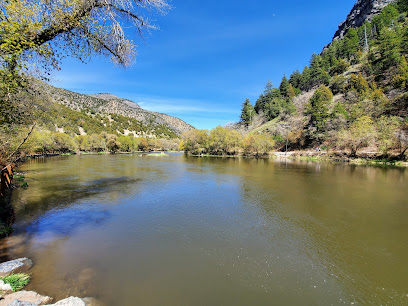
Wasatch National Forest
Discover the stunning beauty of Wasatch National Forest, a paradise for outdoor enthusiasts and nature lovers in Utah, offering adventures year-round.
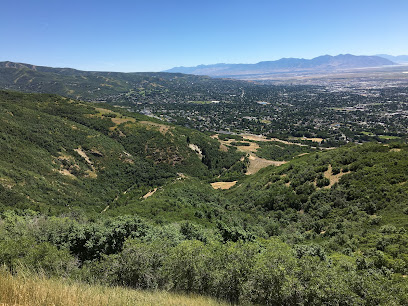
Uinta-Wasatch-Cache National Forests Headquarters
Discover the gateway to Utah's natural wonders at the Uinta-Wasatch-Cache National Forests Headquarters, your starting point for outdoor adventures.
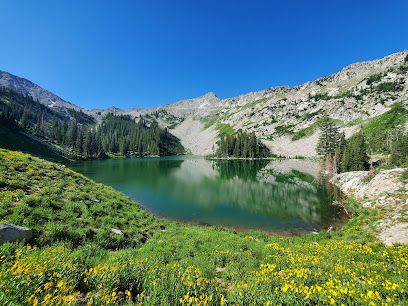
Wasatch-Cache National Forest
Experience the breathtaking beauty and diverse recreational opportunities of Wasatch-Cache National Forest in Utah, your ultimate outdoor adventure destination.
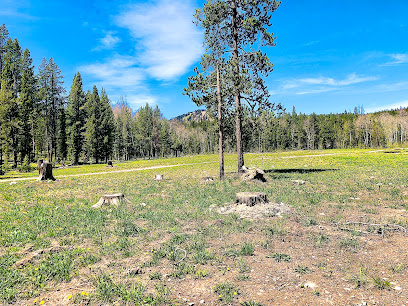
Uinta National Forest
Discover the breathtaking landscapes and diverse wildlife of Uinta National Forest in Utah, a paradise for outdoor enthusiasts and nature lovers.
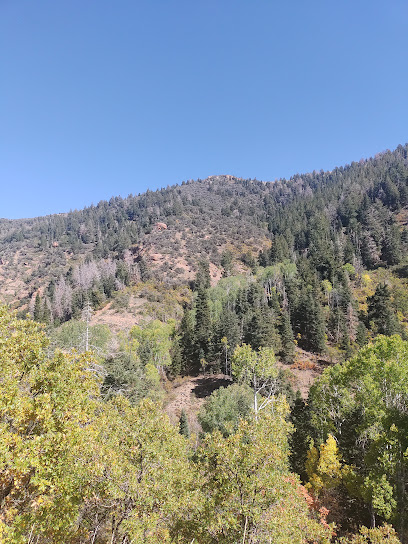
Unmissable attractions to see
Utah Olympic Park
Explore Utah Olympic Park, where Olympic spirit meets thrilling adventures in the stunning landscapes of Park City.
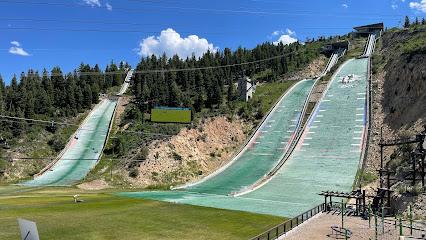
Deer Creek State Park
Experience the breathtaking landscapes and recreational activities at Deer Creek State Park, a premier outdoor destination in Utah.
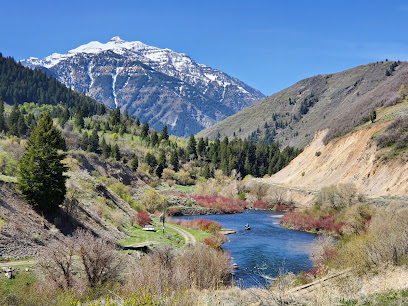
Bean Life Science Museum
Explore the breathtaking diversity of life at the Bean Life Science Museum in Provo, Utah, a captivating destination for science enthusiasts and families.
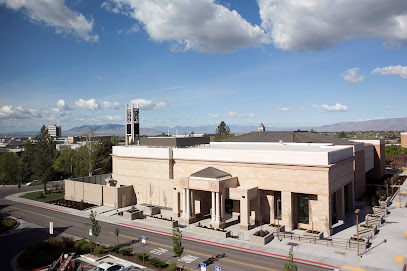
Brigham Young University Museum of Art (MOA)
Discover the artistic treasures at Brigham Young University Museum of Art, where creativity meets culture in a captivating setting.
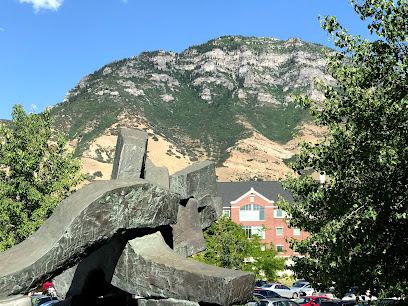
Springville Museum of Art
Explore the Springville Museum of Art, where Utah's artistic heritage comes to life through diverse collections and engaging community events.
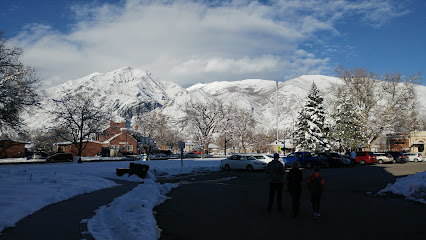
Rock Canyon Park
Explore the scenic beauty and outdoor adventures at Rock Canyon Park in Provo, Utah, a perfect destination for nature lovers and families.
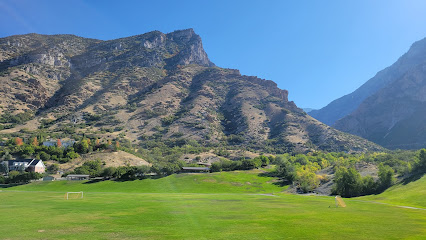
Fifth Water Hot Springs Trailhead
Experience the natural beauty and tranquility of Fifth Water Hot Springs, a stunning hiking destination in Utah's breathtaking wilderness.
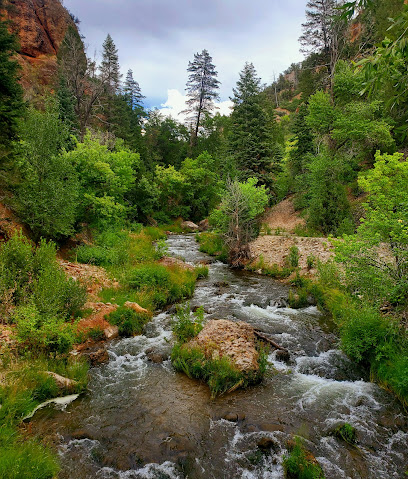
Nunn's Park
Discover the natural beauty of Nunn's Park in Provo Canyon, Utah, where adventure meets serenity amidst breathtaking landscapes.
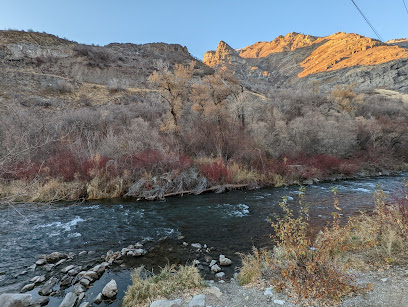
Kyhv Peak Lookout Point
Discover stunning panoramas and serene nature at Kyhv Peak Lookout Point in Provo, Utah – a must-visit vista for every traveler.
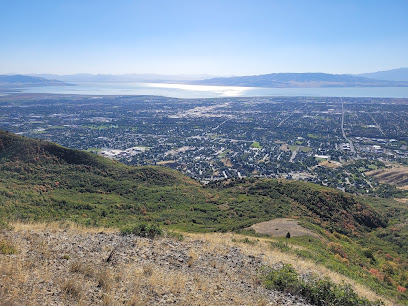
Shri Shri Radha Krishna Temple
Explore the serene Shri Shri Radha Krishna Temple in Spanish Fork, Utah, a spiritual haven with vibrant community events and delicious vegetarian cuisine.
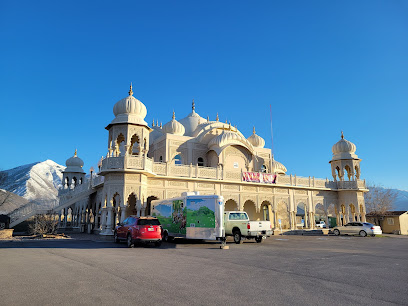
Wayne Bartholomew Family Park
Discover the natural charm and family-friendly amenities of Wayne Bartholomew Family Park in Springville, Utah, the perfect retreat for outdoor enthusiasts.
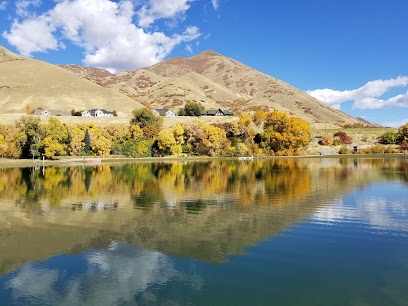
Seven Peaks Water Park Provo
Experience the ultimate summer fun at Seven Peaks Water Park Provo, where excitement meets relaxation in the heart of Utah's stunning landscapes.
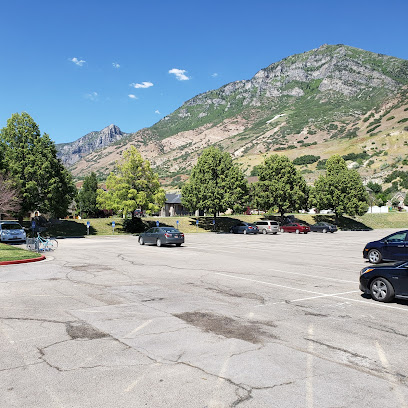
Stewart Falls
Experience the breathtaking beauty of Stewart Falls in Provo, Utah - a must-visit hiking destination surrounded by stunning mountain vistas.
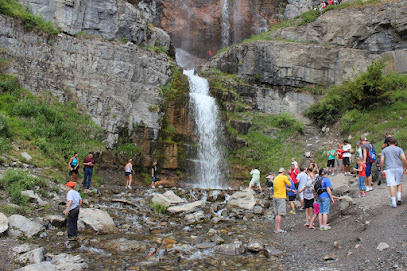
Rock Canyon
Discover the splendor of Rock Canyon, a premier hiking destination in Provo, Utah, known for stunning views and diverse wildlife encounters.
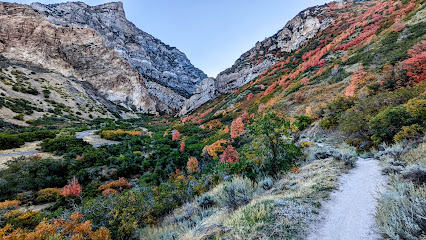
Big Springs Park
Experience nature's tranquility at Big Springs Park in Provo, Utah, where stunning scenery and outdoor activities await all visitors.
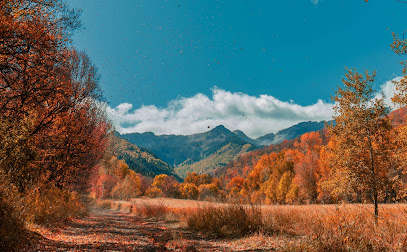
Essential places to dine
The Copper Onion
Experience the vibrant flavors of New American cuisine at The Copper Onion in Salt Lake City—a family-friendly destination serving locally sourced delights.
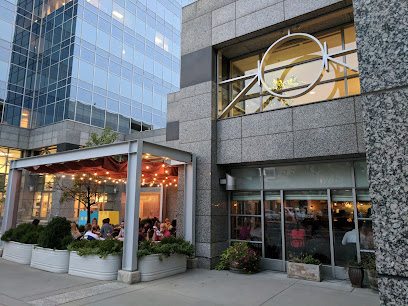
Blue Iguana Salt Lake City
Experience vibrant flavors and authentic Mexican dishes at Blue Iguana in Salt Lake City - a culinary gem in downtown!
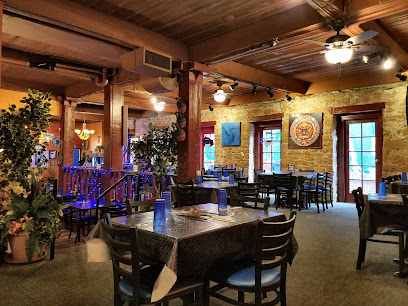
Wasatch Brew Pub
Discover craft beers and delicious cuisine at Wasatch Brew Pub in Salt Lake City - where every meal is paired with local flavor.
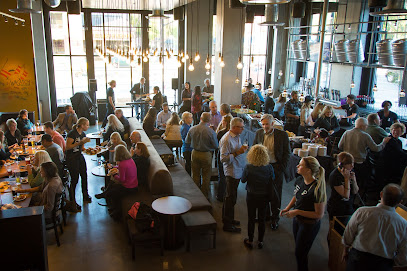
Prairie Schooner Steak House
Experience the rich flavors of expertly grilled steaks at Prairie Schooner Steak House - Ogden's premier dining destination for meat lovers.
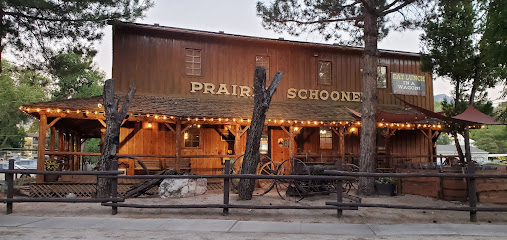
Garage on Beck
Experience vibrant American cuisine and live music at Garage on Beck in Salt Lake City - where flavor meets fun.
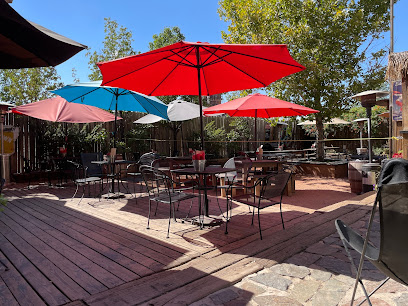
White Horse Spirits & Kitchen
Experience the vibrant flavors of American cuisine at White Horse Spirits & Kitchen in downtown Salt Lake City.
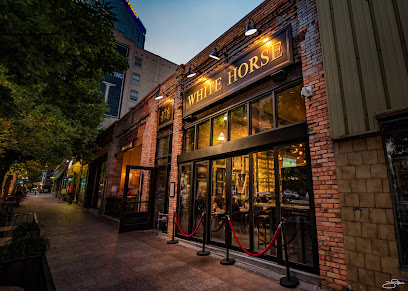
Log Haven
Experience exceptional American cuisine amidst stunning mountain scenery at Log Haven in Mill Creek Canyon.
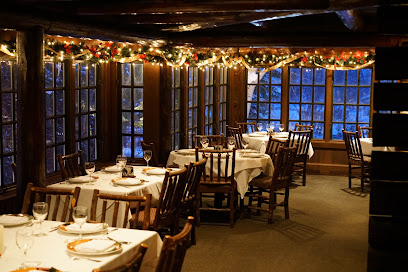
Bodega and The Rest
Discover innovative New American cuisine and craft cocktails at Bodega and The Rest in downtown Salt Lake City - a culinary experience not to be missed.
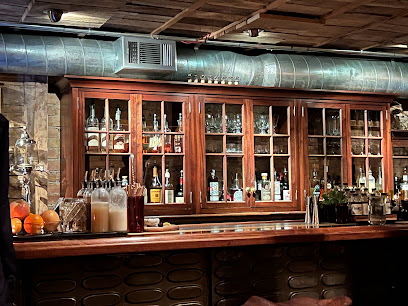
Sego Restaurant
Discover the exquisite flavors of New American cuisine at Sego Restaurant in Kanab, Utah – where each dish is a work of art.
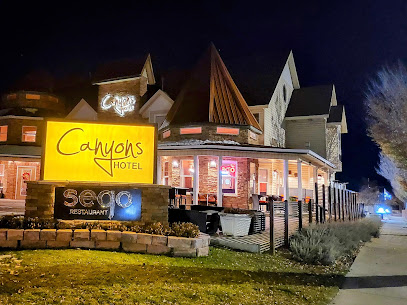
Franck's Restaurant
Discover the exquisite fusion of global flavors at Franck's Restaurant – where fine dining meets eclectic culinary artistry.
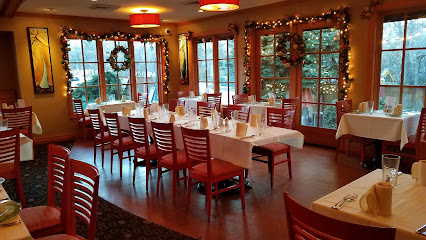
Table X
Discover fine dining at Table X in Salt Lake City - where fresh ingredients meet exquisite American cuisine in an elegant setting.
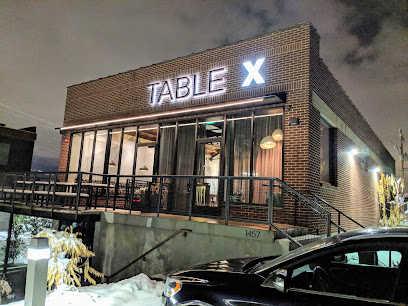
Summit Pizza Co & Ice Cream
Savor mouthwatering pizzas and delightful ice cream in Kamas – a culinary gem amidst Utah's stunning landscapes.
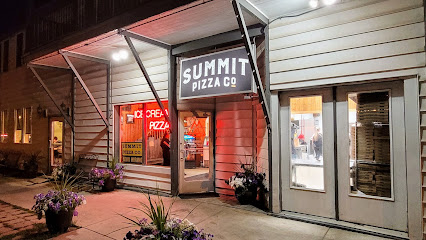
SLC Eatery
Experience the best of New American cuisine at SLC Eatery in Salt Lake City - where fresh seafood meets innovative flavors.
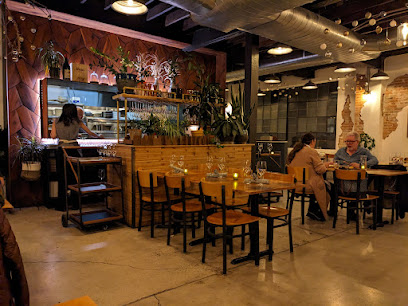
Uinta Brewing Co
Discover Uinta Brewing Co: where exceptional craft beers meet delicious food in a vibrant Salt Lake City atmosphere.
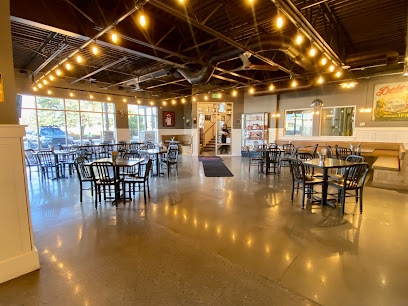
Cultivate Craft Kitchen
Discover culinary creativity at Cultivate Craft Kitchen in Draper, Utah - where fresh ingredients meet innovative flavors for a unique dining experience.
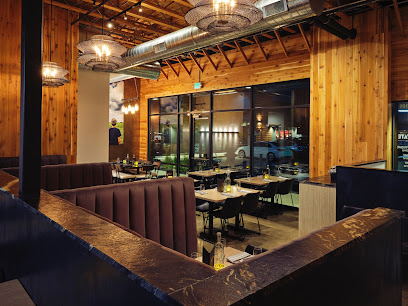
Markets, malls and hidden boutiques
City Creek Center
Experience premier shopping and dining at City Creek Center, the heart of Salt Lake City’s vibrant retail scene with stunning views and unique events.
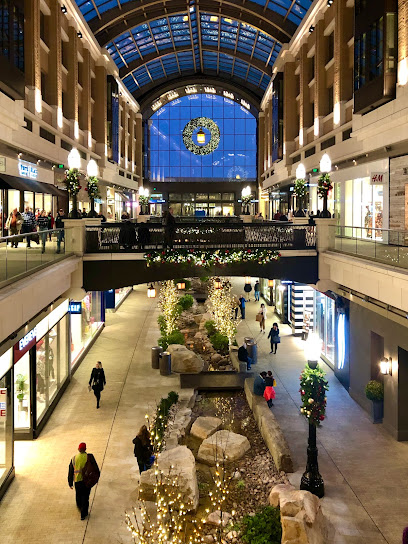
The Gateway
Discover a shopping and cultural paradise at The Gateway in Salt Lake City, where retail meets entertainment and art in a stunning downtown setting.
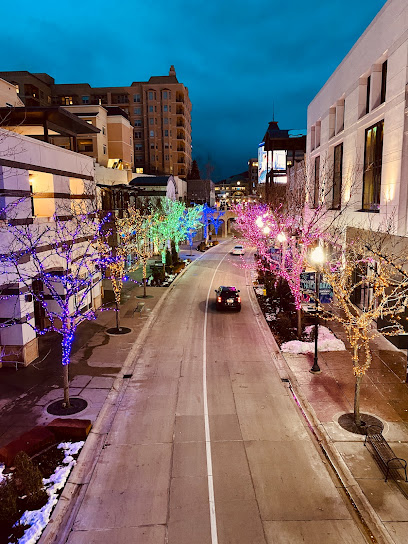
Trolley Square
Experience the blend of history and modern shopping at Trolley Square, Salt Lake City's premier shopping destination.
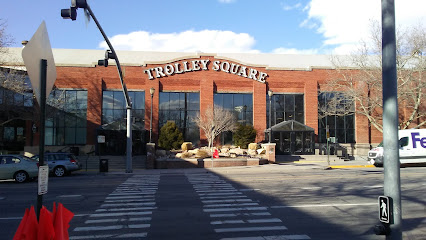
Missionary Mall
Explore stylish men's clothing and expert tailoring at Missionary Mall in Orem, Utah, your destination for fashion and quality.
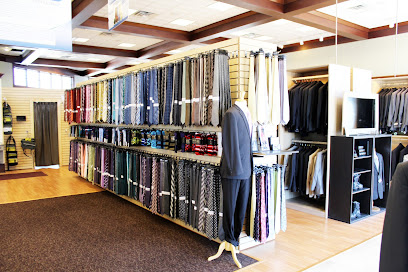
FOOTHILL VILLAGE
Explore Foothill Village: A vibrant shopping mall in Salt Lake City offering unique stores, delicious dining, and community events for all ages.
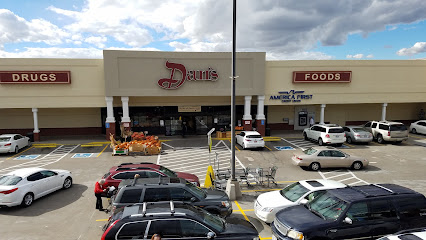
Salt Lake Souvenir & Gift
Explore Salt Lake Souvenir & Gift, the ultimate destination for unique gifts and local treasures that capture Utah's spirit.
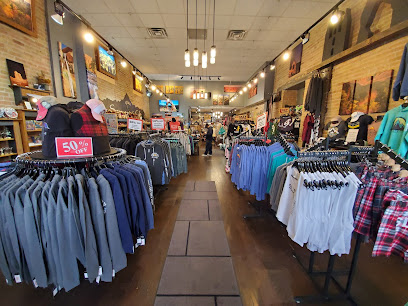
At Home
Explore At Home in Provo for an exceptional home goods shopping experience, featuring furniture, decor, and outdoor living essentials.
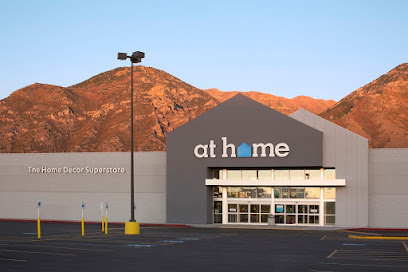
Everything Utah
Discover unique local art, books, and souvenirs at Everything Utah, your ultimate gift shop in Salt Lake City.
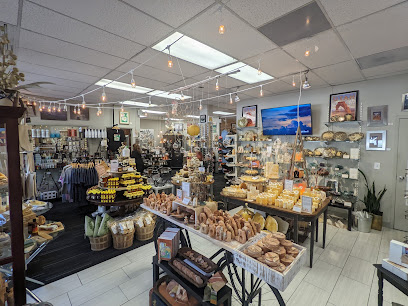
Moon's Rare Books
Explore a unique blend of rare books, antiques, and art at Moon's Rare Books in Provo, Utah - a haven for literary and cultural enthusiasts.
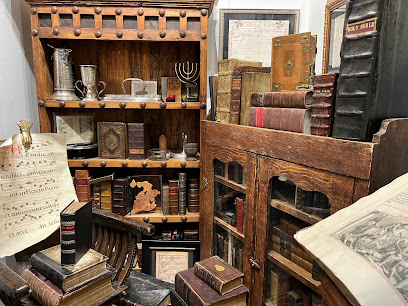
Shop Valore
Explore the exquisite world of handcrafted jewelry at Shop Valore in Provo, Utah, where elegance and craftsmanship come together.
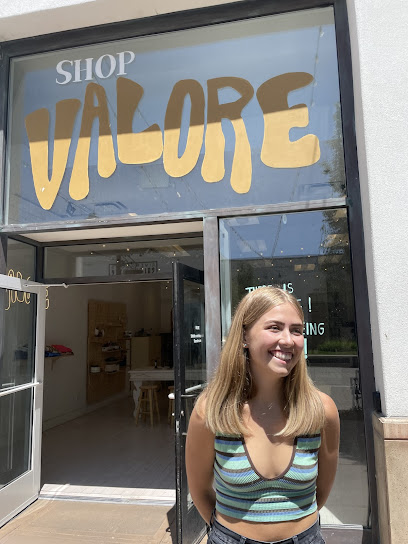
Decades Vintage Clothing
Discover unique fashion treasures from every decade at Decades Vintage Clothing in Salt Lake City, a must-visit for vintage lovers.
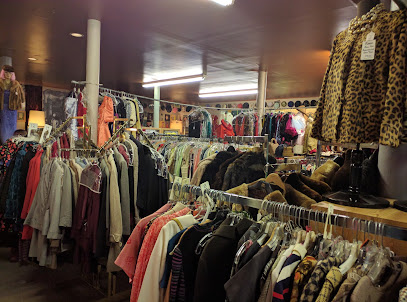
Salt & Honey Market
Explore Salt & Honey Market for unique gifts and local artisan treasures in Salt Lake City, where creativity meets community.

Preloved Provo
Explore the vibrant thrift culture at Preloved Provo, where sustainable shopping meets unique fashion finds for the whole family.

Build-A-Bear Workshop
Create cherished memories at Build-A-Bear Workshop, where imagination comes to life with customizable stuffed animals and engaging experiences for all ages.

The Crystal Ray
Explore The Crystal Ray in Pleasant Grove, UT for a unique blend of metaphysical supplies, handcrafted jewelry, and psychic services.
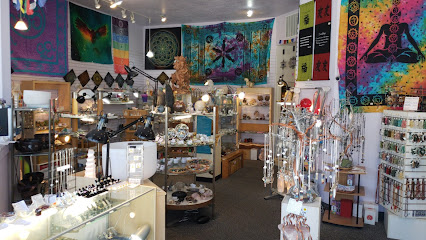
Essential bars & hidden hideouts
Ruby River Steakhouse
Indulge in expertly crafted steaks and American cuisine at Ruby River Steakhouse, a Provo favorite for family dining and events.
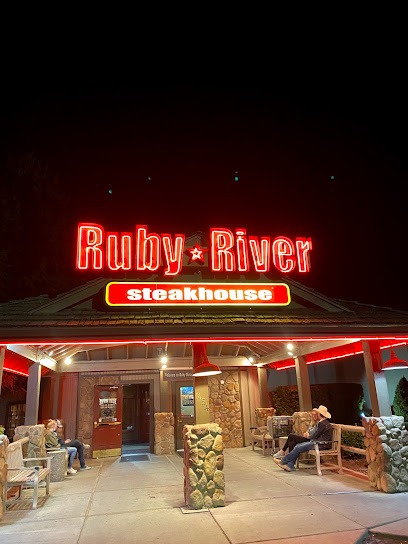
Village Inn
Discover the heartwarming flavors of Village Inn, where family-friendly dining meets delicious breakfast and homemade pies in Provo, Utah.
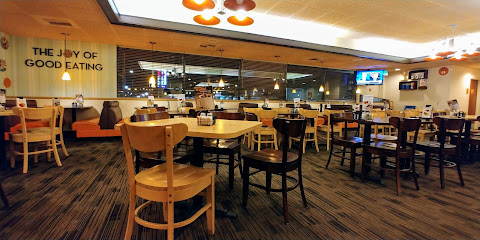
Joe Bandido's
Experience the vibrant taste of authentic Mexican cuisine at Joe Bandido's in Springville, Utah, where every meal is a celebration of flavor.
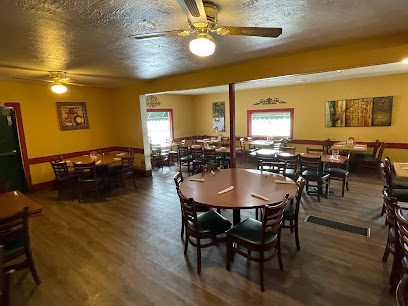
Strap Tank Brewery
Discover Strap Tank Brewery in Springville, where craft brews meet delicious American cuisine and live music creates an unforgettable atmosphere.
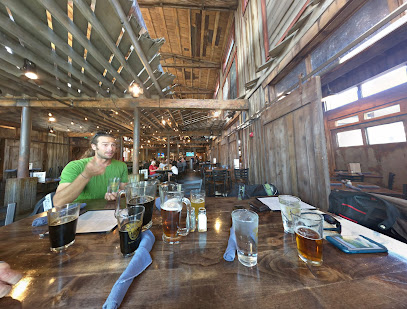
Magleby’s
Discover Magleby’s in Springville – where exquisite American cuisine meets fine dining elegance for an unforgettable experience.
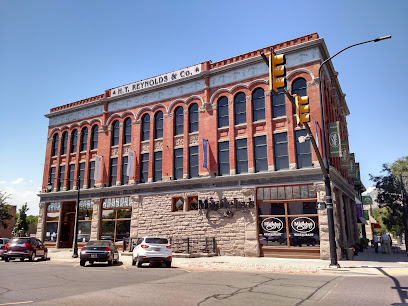
Station 22
Discover Station 22, Provo's vibrant American restaurant, offering delicious food and a welcoming atmosphere for every traveler.
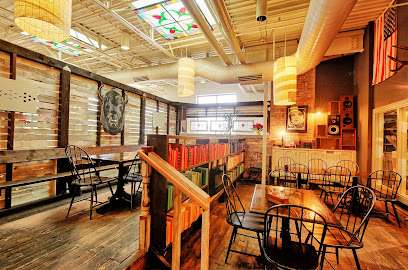
Black Sheep Cafe
Experience the rich heritage of Native American cuisine at Black Sheep Cafe, where tradition meets modern culinary artistry in Provo.
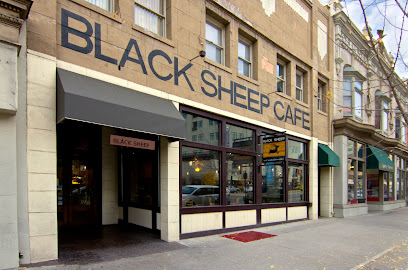
Communal
Experience the essence of American cuisine at Communal, where local ingredients and culinary creativity meet in a vibrant setting.
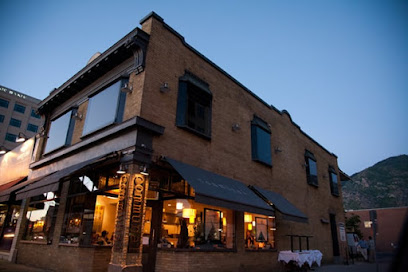
Chili's Grill & Bar
Experience the perfect blend of American and Tex-Mex cuisine at Chili's Grill & Bar in Spanish Fork, a favorite dining spot for families and friends.
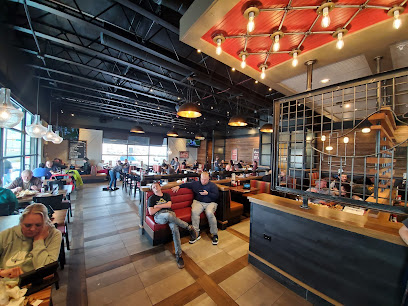
WINGERS Restaurant
Experience the best of American cuisine at WINGERS Restaurant in Provo, featuring delicious chicken wings, burgers, and a vibrant atmosphere.
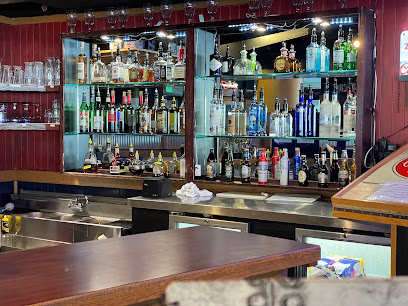
Sidecar Cafe
Experience the delightful flavors of American comfort food at Sidecar Cafe in Springville, Utah, perfect for breakfast and lunch.
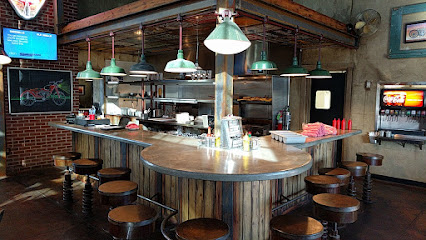
Ginger's Garden Cafe
Discover a delightful dining experience at Ginger's Garden Cafe in Springville, Utah, where fresh, local flavors come together in a cozy atmosphere.
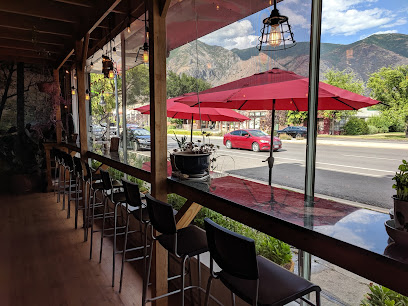
ABG's Bar
Discover the lively spirit of Provo at ABG's Bar, where friendly vibes, delicious drinks, and great entertainment await every visitor.
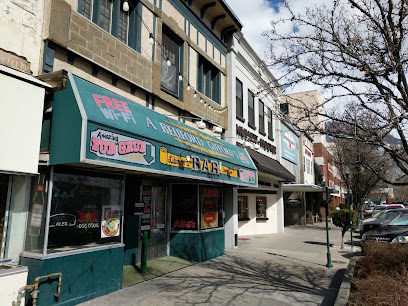
The Notch Pub
Experience the warmth of Kamas, Utah at The Notch Pub – where delicious food meets local charm in a cozy atmosphere.
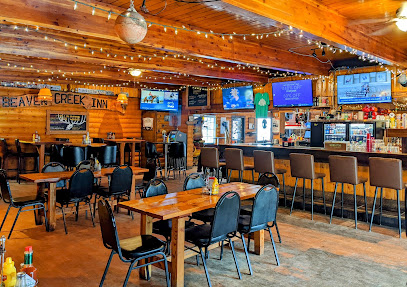
Local Phrases about Uinta-Wasatch-Cache National Forest
-
- HelloHowdy
[haw-dee] - GoodbyeSee ya
[see yuh] - YesYup
[yuhp] - NoNope
[nohp] - Please/You're welcomePlease
[pleez] - Thank youThanks
[thanks] - Excuse me/SorryPardon
[par-dun] - How are you?Howdy
[haw-dee] - Fine. And you?Fine. You?
[fahyn. yuh] - Do you speak English?Speak English?
[speek ing-glish] - I don't understandHuh?
[huh]
- HelloHowdy
-
- I'd like to see the menu, pleaseMenu, please
[men-yoo, pleez] - I don't eat meatNo meat
[noh meet] - Cheers!Cheers!
[cheers] - I would like to pay, pleasePay, please
[pay, pleez]
- I'd like to see the menu, pleaseMenu, please
-
- Help!Help!
[help] - Go away!Go away!
[go away] - Call the Police!Police!
[puh-lees] - Call a doctor!Doctor!
[dok-ter] - I'm lostLost
[lost] - I'm illSick
[sik]
- Help!Help!
-
- I'd like to buy...Buy...
[byoo] - I'm just lookingJust looking
[just look-ing] - How much is it?Price?
[prahys] - That's too expensiveToo much
[too much] - Can you lower the price?Lower price?
[loh-wur prahys]
- I'd like to buy...Buy...
-
- What time is it?Time?
[tahym] - It's one o'clockOne o'clock
[wuhn oh-klok] - Half past (10)Half past
[haf past] - MorningMorning
[mawr-ning] - AfternoonAfternoon
[af-ter-noon] - EveningEvening
[eev-ning] - YesterdayYesterday
[yest-er-day] - TodayToday
[tuh-day] - TomorrowTomorrow
[tuh-mawr-oh] - 1One
[wuhn] - 2Two
[too] - 3Three
[three] - 4Four
[fawr] - 5Five
[fahyv] - 6Six
[siks] - 7Seven
[sev-uhn] - 8Eight
[eyt] - 9Nine
[nahyn] - 10Ten
[ten]
- What time is it?Time?
-
- Where's a/the...?Where...?
[wair] - What's the address?Address?
[uh-dres] - Can you show me (on the map)?Show on map?
[shoh on map] - When's the next (bus)?Next (bus)?
[nekst bus] - A ticket (to ....)Ticket (to...)
[tik-it to]
- Where's a/the...?Where...?
History of Uinta-Wasatch-Cache National Forest
-
Long before European settlers arrived, the Uinta-Wasatch-Cache National Forest was inhabited by various Native American tribes, including the Ute, Shoshone, and Goshute. These tribes utilized the forest's abundant resources for hunting, fishing, and gathering. Evidence of their presence can be seen in petroglyphs and archaeological sites scattered throughout the forest.
-
In the early 19th century, European trappers and traders ventured into the area that is now Uinta-Wasatch-Cache National Forest. Figures such as Jim Bridger and Jedediah Smith explored the region, establishing trade routes and interacting with the native populations. Their expeditions opened the way for further exploration and settlement.
-
The mid-19th century saw an influx of Mormon settlers traveling westward along the Mormon Pioneer Trail. Brigham Young and his followers passed through the forest in 1847, establishing settlements and utilizing the forest's resources for timber and grazing. Many of the trails they blazed are still in use today, providing a historical link to the region's pioneering past.
-
In the late 19th and early 20th centuries, the U.S. government recognized the need to protect the nation's forested areas. President Benjamin Harrison established the Uinta Forest Reserve in 1897, and subsequent expansions and mergers led to the creation of the Wasatch and Cache National Forests. These reserves aimed to conserve water sources, timber, and wildlife habitats.
-
The early 20th century saw a growing interest in outdoor recreation and tourism. The establishment of the Civilian Conservation Corps (CCC) during the Great Depression led to the construction of many trails, campgrounds, and shelters within the forest. These developments made the forest more accessible to the public, fostering a lasting appreciation for its natural beauty.
-
In the latter half of the 20th century and into the 21st century, there has been an increasing emphasis on environmental conservation within the Uinta-Wasatch-Cache National Forest. Efforts have been made to protect endangered species, restore natural habitats, and promote sustainable recreation practices. These initiatives ensure that the forest remains a vital ecological and recreational resource for future generations.
Uinta-Wasatch-Cache National Forest Essentials
-
Uinta-Wasatch-Cache National Forest is located in northern Utah, United States. The nearest major airport is Salt Lake City International Airport, approximately 30 to 90 miles away from various entry points of the forest. From Salt Lake City, you can rent a car for a scenic drive to the forest. Alternatively, there are regional airports such as Provo Municipal Airport and Ogden-Hinckley Airport for closer access. Public transportation options are limited, so renting a car is highly recommended.
-
Within the Uinta-Wasatch-Cache National Forest, the best way to get around is by car. The forest covers a vast area, and many of its attractions are spread out. Roads within the forest are generally well-maintained, but some areas may require a 4WD vehicle. There are also numerous hiking and biking trails for those who wish to explore on foot or by bike. During winter months, snowmobiles and cross-country skis are popular modes of transportation.
-
The official currency is the United States Dollar (USD). Credit and debit cards are widely accepted in most establishments, including gas stations, restaurants, and shops. However, it is advisable to carry some cash, especially when venturing into more remote areas where card payment facilities may be limited. ATMs are available in nearby towns such as Park City, Heber City, and Logan.
-
Uinta-Wasatch-Cache National Forest is generally a safe destination for tourists. However, standard precautions should be taken. Always lock your vehicles and secure your belongings, especially in more populated areas and trailheads where theft can occur. Be aware of wildlife and maintain a safe distance. There are no specific high-crime areas targeting tourists, but it is always best to stay vigilant and aware of your surroundings.
-
In case of emergency, dial 911 for immediate assistance. The nearest medical facilities are located in towns surrounding the forest, such as Park City, Heber City, and Logan. It is highly recommended to carry a first aid kit and be prepared for wilderness emergencies. Inform someone of your travel plans if venturing into remote areas. Carry a map, compass, or GPS device, as cellphone service can be unreliable in some parts of the forest.
-
Fashion: Do wear layers and appropriate outdoor gear, as weather conditions can change rapidly. Avoid wearing open-toed shoes on trails. Religion: Do respect any cultural or historical sites within the forest. Public Transport: Do plan ahead, as public transportation options are limited. Renting a car is the best option. Greetings: Do greet fellow hikers and campers with a friendly nod or hello. Eating & Drinking: Do pack out all trash and follow Leave No Trace principles. Don't feed wildlife, as it disrupts their natural behavior.
-
To experience Uinta-Wasatch-Cache National Forest like a local, visit during the shoulder seasons (spring and fall) when the weather is pleasant and the crowds are thinner. Engage with local rangers and visitor centers to get insider tips on the best trails and hidden gems. Participate in ranger-led programs and educational talks to learn more about the forest's ecology and history. Don't miss the scenic drives along Mirror Lake Highway and Alpine Loop for breathtaking views.
Nearby Cities to Uinta-Wasatch-Cache National Forest
-
Things To Do in Park City
-
Things To Do in Evanston
-
Things To Do in Provo
-
Things To Do in Salt Lake City
-
Things To Do in Duchesne
-
Things To Do in Ogden
-
Things To Do in Price
-
Things To Do in Vernal
-
Things To Do in Logan
-
Things To Do in Huntington
-
Things To Do in Ephraim
-
Things To Do in Rock Springs
-
Things To Do in Delta
-
Things To Do in Green River
-
Things To Do in Richfield













